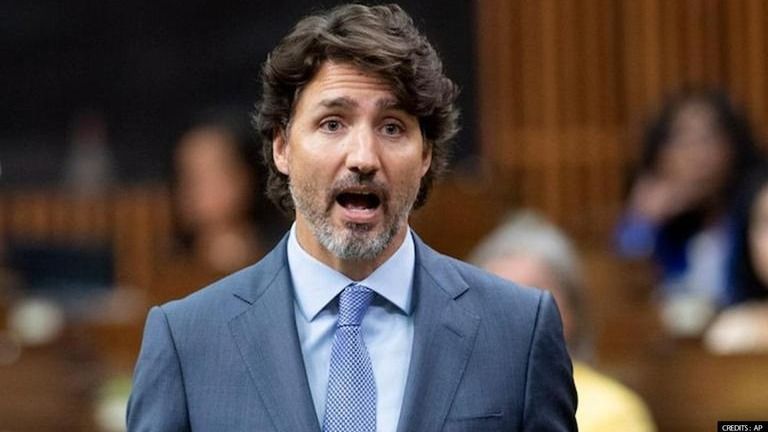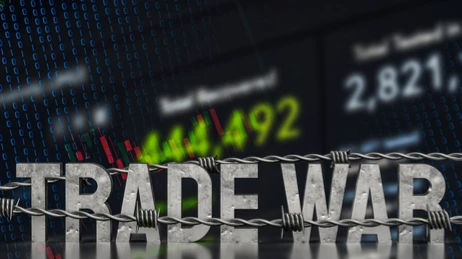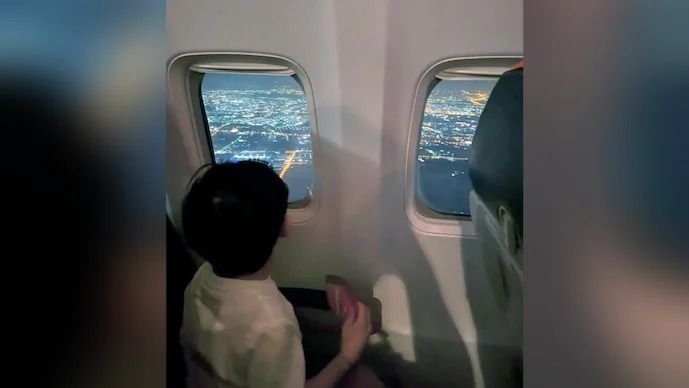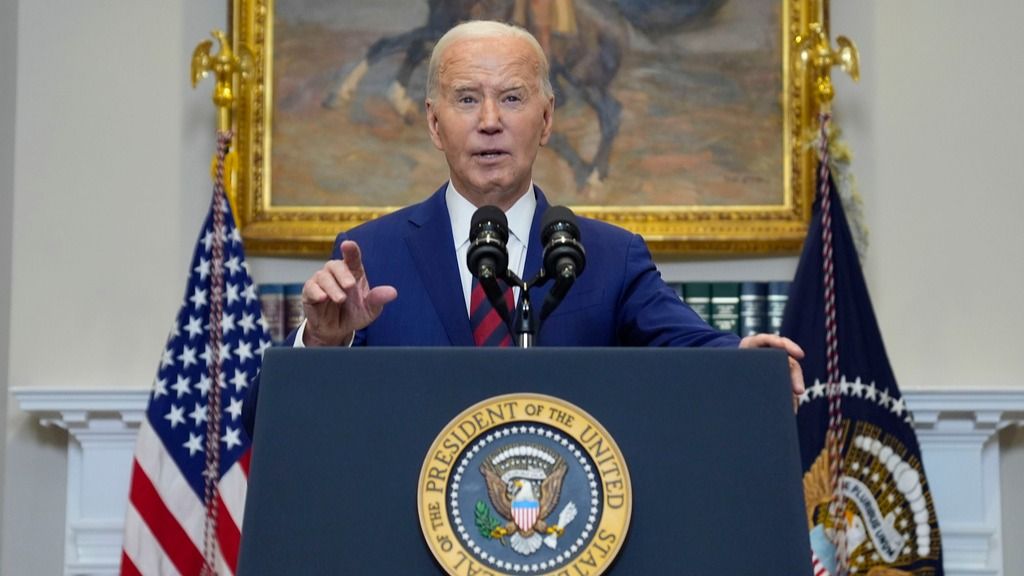New Delhi: Canada, especially under the Trudeau government, has repeatedly aligned itself with forces deeply involved in terrorism against India and beyond. From fastracking citizenship to Khalistani terrorists Hardeep Singh Nijjar to harbouring notorious criminals like Goldy Brar, and Lakhbir Singh Landa, Canada’s blatant complicity has now been exposed. Instead of condemning and taking action against these violent forces, they’ve been openly harbouring them on their soil, showing complete disregard for India’s security. This mirrors Pakistan ’s track record of sheltering terrorists for anti-India activities— a strategy that ultimately led to Pakistan’s downfall.
Just as Pakistan sheltered Osama bin Laden, Masood Azhar, Ahmed Omar Saeed Sheikh, and Syed Salahuddin, Canada has become a haven for Khalistani extremists and Babbar Khalsa terrorists, brazenly protecting enemies of India.
When Canadian Parliament Observed ‘One-Minute Silence’ in Memory of Nijjar
Earlier this year, the Canadian Parliament observed a moment of silence to mark the first anniversary of Khalistan terrorist Hardeep Singh Nijjar’s murder. Nijjar, who was gunned down near a parking lot in Canada’s Surrey on June 18 last year was marked as a ‘designated terrorist’ by the Indian government under the Unlawful Activities (Prevention) Act (UAPA). The murder is being probed by the Royal Canadian Mounted Police (RCMP).
India had then strongly criticised the Canadian parliament’s move. “We naturally oppose any moves giving political space to extremism and advocacy of violence,” External Affairs Ministry spokesperson Randhir Jaiswal said.
When Nijjar Openly Promoted Use of Violence
In a 2021 speech, Hardeep Nijjar openly promoted the use of violence, stating, “We will have to take up arms… What justice will we get this way?” This rhetoric underscores concerns about Sikh extremism in Canada.
Nijjar was shot dead outside a Sikh gurdwara in Surrey, British Columbia, in 2023. Canadian Prime Minister Justin Trudeau alleged that the Indian government was involved in his killing, leading to a diplomatic crisis between India and Canada.
However, the Indian government accused Nijjar of being involved in significant criminal activities, including the 2007 cinema hall bombing in Punjab and an attempted murder in 2021. These allegations have gained some validation, as reported by The Globe and Mail.
Reports indicate that Nijjar had personal ties to the Khalistani movement and was influenced by Anokh Singh Babbar, a co-founder of the terrorist group Babbar Khalsa, which was behind the Air India Kanishka bombing—the deadliest terror attack in Canadian history.
When Trudeau Took Part in Pro-Khalistan Event
Earlier this year, pro-Khalistan chants resonated at an event attended by Canadian Prime Minister Justin Trudeau. In response, the Indian Ministry of External Affairs summoned the Canadian deputy high commissioner to strongly protest the blatant display of separatist pro-Khalistan slogans during Trudeau’s address at a ‘Khalsa Day’ gathering in Toronto, where banners demanding “Modi wanted” were prominently displayed.
This alarming incident has raised serious concerns within the Indian intelligence community. The banners were reportedly put up by the secessionist group Sikhs For Justice (SFJ), which has called for retaliation against those responsible for the killing of terrorist Hardeep Singh Nijjar and has incited violence against Indian diplomats in Canada.
Lakhbir Singh Landa Residing in Canada Since 2017
Lakhbir Singh Landa, the gangster-turned-terrorist, who has been living in Canada since 2017, is the mastermind in several cases of terrorism, including the 2022 RPG attacks on the Punjab Police Intelligence Headquarters and the Sarhali police station in Punjab, among other cases of terror attacks in India, the National Investigation Agency stated earlier. Landa currently resides in Edmonton, the capital of Alberta in Canada, and is a member of Babbar Khalsa International (BKI), which is listed as a terrorist organisation as per “number I of the First Schedule to the said Act.”
According to an MHA release, Landa was “involved in the supply of Improvised Explosive Devices (IEDs), arms, sophisticated weapons, and explosives from across the border to various modules for carrying out terrorist activities in the State of Punjab , India”.
He was backed by the cross-border agency and was involved in the terror attack through a shoulder-mounted rocket-propelled grenade on the building of Punjab ‘s State Intelligence Headquarters at Mohali. Landa was also involved in various criminal cases related to the raising of terror modules, extortion, and killings. planting IEDs, smuggling weapons and narcotics and using funds or proceeds thereof for terrorist acts in the Punjab and other parts of the country, it added.
Landa and his associates have also been conspiring to disrupt peace and law and order in Punjab by carrying out targeted killings, extortions and other anti-national activities in different parts of the country. Initially involved in criminal and gangster-related activities, Landa has been continuing his anti-India activities from Canada, according to officials.
Sukhdool Singh Gill’s Lavish Lifestyle in Canada
Sukhdool Singh Gill, commonly known as Sukha Duneke, was a notorious criminal who enjoyed a lavish lifestyle in Canada until his murder, which has been under investigation by Winnipeg police for over a year. Gill was listed as wanted by the National Investigation Agency (NIA) due to his connections with the Bambiha gang, headed by the infamous gangster Davinder Bambiha, known for its violent gang wars, extortion schemes, and murders throughout Punjab , Haryana , Rajasthan , and Delhi. Accumulating over 16 criminal cases across various jurisdictions, Gill’s notoriety was further heightened by his alleged role in the murder of prominent international kabaddi player Sandeep Singh from Jalandhar in March 2022.
Goldy Brar Orchestered Various Criminal Activities From Canada
Goldy Brar, the prime suspect in the murder of Punjabi singer Sidhu Moosewala, moved to Canada in 2017 on a student visa. From there, he has orchestrated various criminal activities, including ordering hits on rivals and extorting money from high-net-worth individuals. Allegedly, he operates contract killing and extortion rackets in India while residing in Canada, and he is wanted in over 50 cases involving murder, attempted murder, and extortion.
In 2022, an Interpol notice was issued for Brar, who later reportedly relocated to the United States.
In May of this year, multiple reports surfaced claiming that Brar had been killed. However, U.S. authorities swiftly debunked these rumours, informing a leading news outlet that the reports were false and confirming that Brar was still alive.
Is Canada Turning into a Safe Haven For Terrorists?
In the latest standoff with India, Justin Trudeau appears to be attempting to salvage his political standing by fostering an anti-India sentiment and supporting individuals designated as terrorists by Interpol. Notably, Canada had previously placed terrorist Hardeep Singh Nijjar on its ‘no-fly’ list, highlighting the contradictory nature of Trudeau’s current stance.
India-Canada Standoff | What Happened Now
The already frosty ties between India and Canada plunged further after the Justin Trudeau government attempted to link the Indian high commissioner to a probe into the killing of Sikh extremist Hardeep Singh Nijjar, and New Delhi Monday warned action against the “concocted” allegations against its diplomat.
In a hard-hitting response, India, strongly rejecting the allegations against High Commissioner Sanjay Kumar Verma, described the charges as “preposterous imputations” and ascribes them to the “political agenda of the Trudeau government that is centred around vote bank politics”.
The Ministry of External Affairs (MEA) said India received a “diplomatic communication from Canada yesterday suggesting that the Indian High Commissioner and other diplomats are ‘persons of interest’ in a matter related to an investigation in that country”.
It said India now reserves the right to take further steps in response to these “latest efforts of the Canadian government to concoct allegations against Indian diplomats”.
“Since Prime Minister Trudeau made certain allegations in September 2023, the Canadian government has not shared a shred of evidence with the Government of India, despite many requests from our side,” the MEA said.
The relations between India and Canada came under severe strain following Prime Minister Trudeau’s allegations in September last year of a “potential” involvement of Indian agents in the killing of Nijjar.
India Withdraws Ambassador
Amid strained ties, India announced withdrawing its high commissioner and other “targeted diplomats and officials” from Canada after strongly dismissing Ottawa’s allegations linking the envoy to an investigation into the killing of Sikh extremist Hardeep Singh Nijjar, in a major downturn in already frosty ties between the two nations.
India’s decision came shortly after the Canadian Charge d’Affaires Stewart Wheelers was summoned to the Ministry of External Affairs (MEA) and was told bluntly that the baseless “targeting” of Indian High Commissioner Sanjay Verma and other diplomats and officials was “completely unacceptable”.
New Delhi described the charges against Verma as “concocted” and “preposterous imputations” and ascribed the allegations to the “political agenda of the Trudeau government that is centred around vote bank politics”.
In its statement, the MEA said India received a “diplomatic communication from Canada yesterday suggesting that the Indian High Commissioner and other diplomats are ‘persons of interest’ in a matter related to an investigation in that country”.
The Canadian Charge d’Affaires (CDA) was summoned by MEA’s Secretary (East) Jaideep Mazumdar and it was underlined to him that in an atmosphere of extremism and violence, the Trudeau government’s actions “endangered” the safety of Indian diplomats and other officials.
“We have no faith in the current Canadian government’s commitment to ensure their security. Therefore, the government of India has decided to withdraw the high commissioner and other targeted diplomats and officials,” the MEA said in a statement.
“It was also conveyed that India reserves the right to take further steps in response to the Trudeau government’s support for extremism, violence and separatism against India,” it said.
India Expels 6 Canadian Diplomats
Later, India expelled 6 Canadian diplomats in a strong protest. A statement from India’s Ministry of External Affairs states that the 6 diplomats are –
Mr. Stewart Ross Wheeler, Acting High Commissioner Mr. Patrick Hebert, Deputy High Commissioner Ms. Marie Catherine Joly, First Secretary Mr. lan Ross David Trites, First Secretary Mr. Adam James Chuipka, First Secretary Ms. Paula Orjuela, First Secretary Harbouring Nijjar to Goldy Brar: Is Canada Turning Into Another Pakistan? world-news World News | Latest International News | Global World News | World News Today




